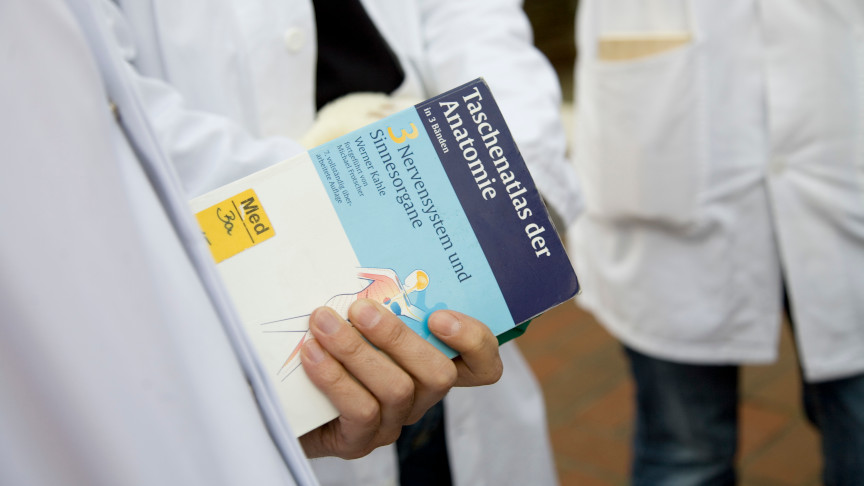Subject Specific Information

Studying Medicine in Germany
Studying medicine in Germany takes about 6 years and ends with the state examination (“Staatsexamen”). Since the form of study is so different from that in Ukraine, it is not automatically possible to continue medical studies begun in Ukraine here in Germany. Also, the subject of medicine is offered exclusively in German.
In order to start studying medicine in Germany, you must learn the German language and check whether you have the relevant higher education entrance qualification.
Please also bear in mind that this is a very competitive course of study and it cannot be guaranteed that you will be admitted to study even if you meet all the necessary criteria.
Some universities offer Master’s programmes in medicine. These are research-related postgraduate courses that do not primarily prepare you to work as a doctor in Germany. Thus, such degree programmes can be an alternative if the aim is not to work as a doctor but, for example, to pursue a career in research.
In addition to the study of medicine, there is also a subject called “public health”.
Public health focuses on the health of an entire population. It investigates the interaction between people and their environment, develops strategies to deal with health problems and addresses issues of health economics.
Students are prepared for various roles within the healthcare sector. The field of health sciences includes Bachelor’s and Master’s courses in public health management, health economics and health education. Some degree courses require students to have completed vocational training. The degree course teaches aspects of medicine, health sciences and social sciences, as well as specialist aspects of psychology and economics.
Traditionally, the nursing professions (including geriatric nursing and obstretics) were not a part of the field of university education in Germany, the training took place exclusively at specialised schools. However, courses of study in nursing are now offered in Germany. These include courses in nursing management, nursing pedagogy and nursing science. You can view their respective specialisations on the websites of the universities in order to find a degree programme that suits you.
Please always enquire directly with the German university whether you meet the requirements for the desired degree programme before applying.
Law
Studying Law in Germany is interesting for international students who wish to work with the German legal system. Their expertise in this field also increases their chances of working for international law firms in other countries. If you choose law, you can work in the private sector in addition to the courtroom.
In the first semesters, students primarily address the three main aspects of the German legal system: civil law, criminal law and public law. They later select an additional subject, e.g. business law.
Although the standard period of study for a law degree course in Germany is eight to ten semesters, many students plan to take longer. Between the First and Second State Law Examinations (Erste und Zweite Juristische Staatsprüfungen), prospective lawyers complete a two-year judicial service training (Referendariat). This is a practical phase with five or six different stations, for example at a court, a public prosecutor’s office or a public authority. Only those who pass both state examinations can work as a lawyer, judge or public prosecutor in Germany.
However, there are also many other career options. More than forty percent of lawyers in Germany take up employment in private enterprises. They work as legal advisors or in-house lawyers, providing permanent legal assistance for a company; they may also work as actuaries in the insurance industry, or even in politics.
Primarily universities of applied sciences, but also some traditional universities, offer law degree courses that end with a Bachelor (LL.B) or Master (LL.M). Most combine content from the fields of both law and business administration. Commercial law students are very much in demand in Germany by associations, administration and management consultancy firms.
Have you already completed a law degree but are interested in the intricacies of German law? Then a postgraduate course might be what you are looking for. Some universities in Germany offer postgraduate courses that teach basic and specialist knowledge of German law in two semesters. Master’s courses can prepare students for employment with an international law firm worldwide.

